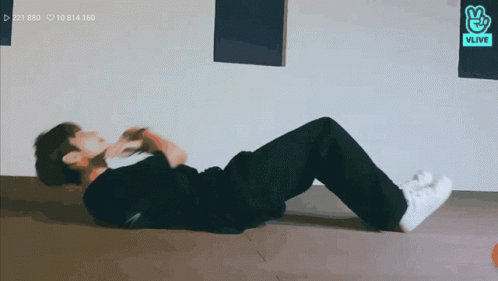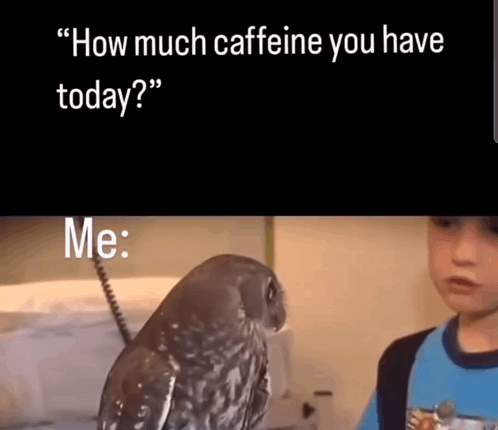
As I sit to write this, I feel like a truck has run over me. I have not had the luxury of a decent night's sleep in about 3 weeks now and my body is telling me constantly that I have to rest. I am feeling a bit on edge and twitchy.
The scientist in me has already identified these as symptoms of stress. These are the symptoms exhibited by anyone who is feeling stressed. Although my stress is a product of work, and sleepless nights, and a couple other things, I have realized that stress for many people is triggered by a lot of things.
A Natural Part of Life.
Stress, believe it or not is natural, and in some cases can be beneficial. Stress is what enables you stand up from bed and run to catch the bus. It is what helps you meet that deadline. The problem usually begins when it becomes chronic.
Your body is supposed to experience short bursts of stress fuelled by the stress hormone called cortisol. These bursts are expected to help you deliver on something that needs to be done... it may be running away from a tiger(like our ancestors), or running to catch the train. Your body was never designed to handle continued increasing stress for a prolonged period of time.
This is what is known as chronic stress and it has serious effects on both mental and physical health. This post is not to explore the effects of stress on the body, but rather how to handle stress and cope effectively with dealing with the monster.
Is managing stress expensive?
Most people think about talking to a therapist every time they think about managing stress. They think that they would need to see a professional who would recommend complicated and sophisticated means of handling stress and anxiety. It doesn't have to be that way.
Managing stress does not need to put a hole in your wallet. With the right information, you can help yourself manage stress and live a life that is healthy, independent from chronic stress.
Tools for managing stress.
Mindful Breathing
Take a moment to sit quietly. Close your eyes and focus your mind on the air going in through your nose slowly, and out through your mouth.
Do that for 5 mins without letting your mind wander. You will soon find that keeping your mind from wandering is the most difficult aspect of that exercise.
What we have just done above is known as mindful breathing. It is a tool that has been shown to reduce stress by activating the parasympathetic nervous system, or the system responsible for resting and digesting. This leads to reduced levels of stress hormone and consequently relieves you of stress and anxiety.
It is cost effective and you can do it anywhere. There are different iterations or modifications of the process, but the underlying idea remains the same.
Physical Exercise

Taking a walk, jogging in the morning, home push-ups. Physical activities help to reduce stress by increasing the amount of endorphins(aka natural pain killer) that are released.
Endorphins can help to reduce the amount of stress hormone in circulation leading to feelings of calm and serene.
You can take brisk walks, or do home based workout sessions which are basically free.. you do not need a gym membership to keep active.
Journaling
Writing down how you feel and your problems provides you with a healthy outlet for emotional release through a process known as expressive disclosure.
It helps to reduce the activity of the emotional brain and increase the activity of the rational brain. This helps to reduce mental clutter and improve mood.
Progressive Muscle Relaxation(PMR)
Let's perform and exercise. Clench your fist on both hands for about 10 seconds, then release and relax for about 20 seconds. Then move to the muscles of your arm, tense them for 10secs, relax for 20sec.
Do this gradually as you work through all the muscle groups in your body. By tensing and relaxing different muscle groups, you are reducing the physical tension of stress on the muscles. This helps the body recognize that there is no immediate threat and forces it to begin to relax.
Limiting Caffeine and Sugar

Caffeine is what you take when you want to activate your flight or flight response system. It is what people take to keep them active during the day, and in the case of pulling an all night event, caffeine is one of the ways to stay awake.
The problem is that if you are already chronically stressed, you have high amount of stress hormones in your body and your fight or flight response system is already active.
Taking caffeine would only add to the stress causing the kind of deleterious effects we see with chronic stress.
Sugar in addition, is a driver of inflammation.
Although people tend to take more sugar when they are stressed, it does nothing to help reduce the stress levels.
The sugar would increase the blood glucose levels once taken, this is what makes the person feel some temporary relief.
But the body soon discovers the extra sugar and works to put it away... this leads the individual into a stressed state that is worse than before he/she took sugar the first time. This would cause the individual to take even more sugar and the cycle repeats itself.
This repeated cycle of spikes and crashes in energy levels increases stress hormone levels and makes it difficult for anyone to effectively manage stress.
Try replacing sugary drinks with water. Instead of a glass of orange juice, try a glass of cold water. Less cookies and biscuits. Replace them with nuts of your choice.
Conclusion
There are other ways to manage stress but I have chosen to list 5 very important ones for your perusal. Managing stress is an important aspect of life if you want to live in health and free of diseases.
Thanks for reading so far.

I am Covenant, a Medical Doctor with a passion for holistic medicine-( fancy word for treating a patient as an individual and not just addressing their symptoms).
My focus lies in the deep connection between mental health and overall wellbeing, and I create content across various medical topics with an emphasis on mental health. Follow me for insights into holistic medicine and approaches to health and wellness.
Thumbnail image is AI generated
